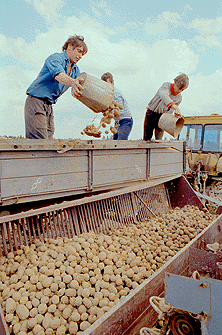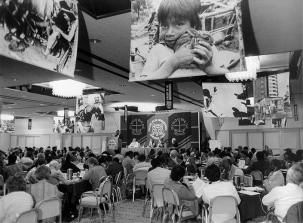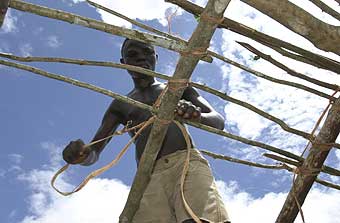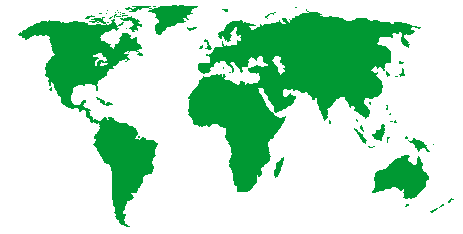|
objectives:
It works towards this aim by attempting to strengthen ecumenical cooperation and witness in diakonia and solidarity, and to nurture just relationships within the ecumenical family. With this overall aim, the team's activities are directed towards four specific objectives: The term "diakonia" refers to service as a permanent activity of the church throughout history. Diakonia is essential and foundational to life in faith. The very existence of a fellowship of churches is impossible to imagine without compassionate service and solidarity for all, based on God's love. Over the years, the concept of diakonia has expanded from being viewed solely as a service of compassion to include working for change in relationships and social structures. The 1986 consultation on "Diakonia 2000: Called to be Neighbours" broadened the meaning of diakonia. The concept became more comprehensive and holistic, taking into account spiritual as well as material needs, and stressing the importance of local expressions of diakonia. The 1987 consultation on Kononia: "Sharing Life in a World Community" focused on the conjunction of diakonia and koinonia, of service and communion, in the sense of solidarity and mutual commitment. Reflection continues on the meaning of diakonia in today's diverse world. It can be said that ecumenical diakonia today |
|
partners: external: capacity-building, empowerment, networking and advocacy; practical actions of solidarity; ecumenical cooperation (coordination, mediation, accompaniment); information-sharing. internal: reflection and analysis; planning, monitoring, evaluation and reporting; administering ecumenical resource-sharing; publishing. tools:ACT - Action by Churches Together (in cooperation with the Lutheran World Federation) for emergency relief |
contact us!
| |
|
|
|
|
|
|
|
|





